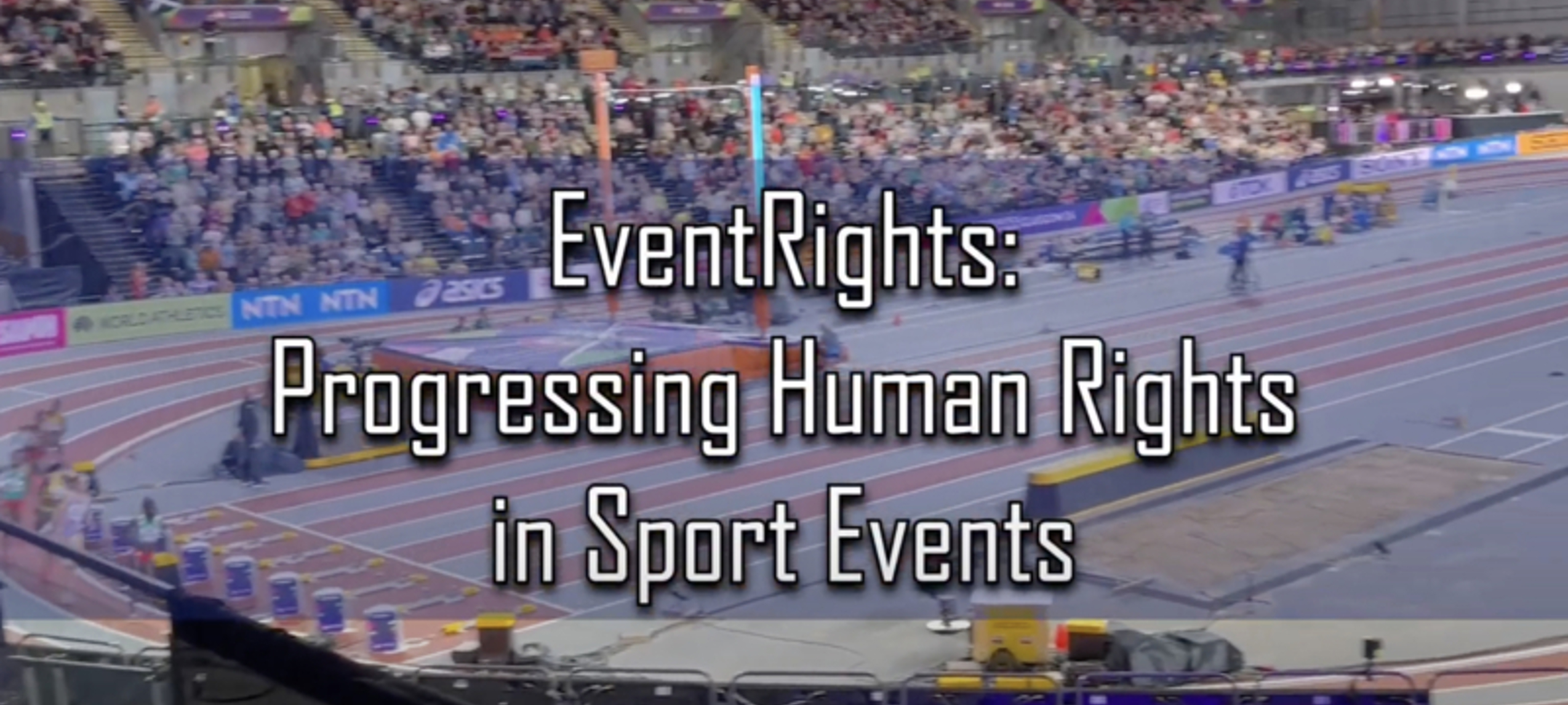Wednesday 11 12 2024

Mega sporting events and human rights are at the centre of a new documentary film produced by University of the West of Scotland in collaboration with an international group of academic and non-academic partners.
The film, titled EventRights: Progressing Human Rights in Sport Events was produced by UWS’ FIRE base, as an outcome of the EventRights research project, and explores the potential for mega sport events like the Olympic Games and FIFA World Cup to shine a light on and advocate positively for progressive social change, within host communities and beyond.
Examining the complex relationship between mega sport events and human rights, the film is released as the FIFA World Cup host nations are announced for the 2030 and 2034 tournaments. Recent mega sport events have faced criticism for infringing human rights including those associated with labour exploitation, housing displacement, LBBTQI+ and restrictions on freedom of expression and assembly.
This film shines a spotlight on the historical and contemporary struggles to ensure mega sport events protect and respect, rather than infringe, human rights in their bidding, planning and delivery.
Professor David McGillivary, UWS
Lead academic director of the film, Professor David McGillivray, from the Centre for Culture, Sport and Events at UWS, added: “It also highlights how academic and non-academic partners can work together to produce research than informs and influence change in the practices of sport governing bodies and governments around the world.”
Produced as the final output of the EventRights research project, it highlights findings from a five-year investigation into the human rights challenges posed by mega sporting events, while proposing strategies to ensure future events are rights-respecting, protecting, and promoting.
Lead Academic from Western University, Canada, Professor Laura Misener, said: “Our work underscores the importance of turning research into actionable solutions.
By drawing on insights from diverse communities and stakeholders, we aim to equip sport governing bodies with practical tools to address human rights concerns. Mega sporting events have the potential to become global platforms for justice and equity, but only through deliberate, rights-focused planning and collaboration.
Professor Laura Misener, Western University, Canada
Since 2018, EventRights has united academic institutions from the UK, Germany, Sweden, Greece, Austria, USA, Canada, Brazil, and Japan with sport organisations and human rights organisations— including the Sport & Rights Alliance—fostering inclusive and sustainable practices in mega sporting events.
This film serves as a call to action for sport governing bodies and governments to prioritise human rights, ensuring that mega sport events benefit all and leave a legacy of equity and respect.
Mega sporting events have the power to inspire and unite, but only if they are managed responsibly and inclusively.
Professor Joerg Koenigstorfer, Technical University Munich
EventRights project coordinator, Professor Joerg Koenigstorfer, from Technical University Munich, added: “Through this film, we want to shine a light on the opportunities these events can bring while addressing the often-overlooked risks they pose to human rights. By encouraging transparency and accountability, we hope to drive a much-needed shift towards ethical practices in the world of sports.”
The film’s release is particularly timely as scrutiny grows over the awards of the 2030 FIFA World Cup to Morocco, Spain, and Portugal and the controversial nomination of Saudi Arabia for the 2034 tournament.
Amnesty International and the Sport & Rights Alliance (SRA) have voiced significant concerns, emphasising the urgent need for comprehensive and credible human rights strategies as conditions for hosting such events.
Director of the Sport & Rights Alliance, Andrea Florence, commented: “Mega sporting events should be a celebration of achievement and unity, not a source of suffering or inequality. It’s vital that sport governing bodies adopt and enforce robust human rights frameworks to protect everyone potentially impacted by these events: from athletes and fans to workers, local residents, journalists and human rights defenders."
"This film underscores the urgency of ensuring sport events uplift rather than exploit, creating a legacy of positive change rather than harm."
The film’s themes align with several United Nations Sustainable Development Goals, including SDG 8 (Decent Work and Economic Growth), SDG 10 (Reduced Inequalities), SDG 11 (Sustainable Cities and Communities), SDG 16 (Peace, Justice, and Strong Institutions), and SDG 17 (Partnerships for the Goals). These goals underscore the importance of ethical practices, inclusivity, and collaboration in addressing the human rights challenges posed by mega sporting events.
